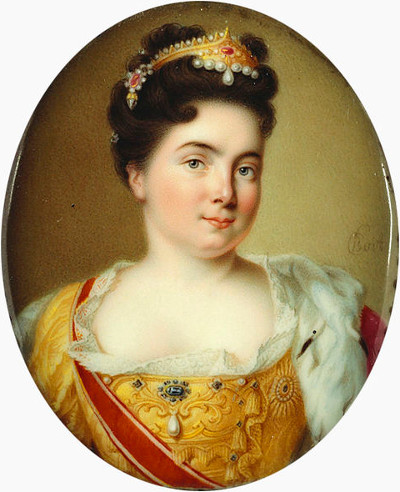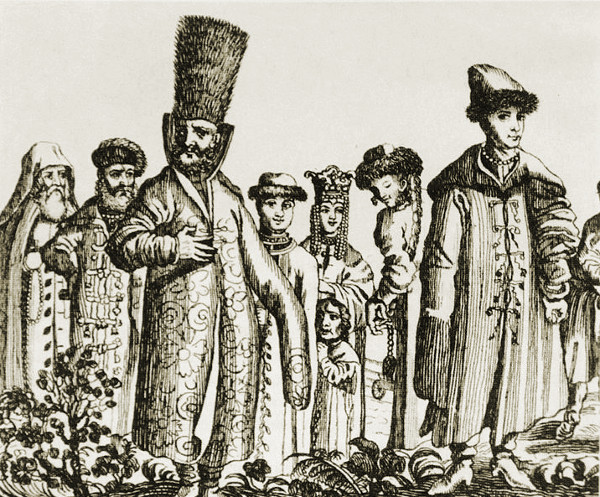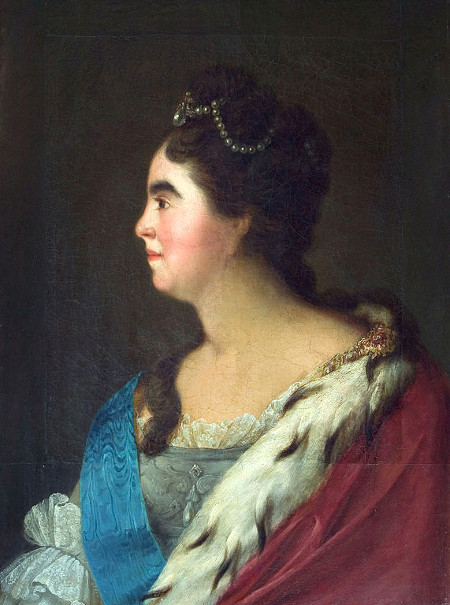
In the first of our interviews with authors shortlisted for the 2021 HWA Crown Awards, Historia talks to Ellen Alpsten, whose novel, Tsarina, is in the running for a Debut Crown Award. It retells the ‘ultimate Cinderella’ story of the tumultuous rise of a peasant girl, Marta Helena Skowrońska, who became first the wife of Tsar Peter the Great and, after his death, the first female ruler of Imperial Russia in her own right as Catherine I (1684-1727).
The HWA Debut Crown celebrates new voices in historical fiction. What does being shortlisted mean for you?
It’s the most wonderful surprise and a milestone on a very long way. It’s such a joy to tell my heroine’s extraordinary story. To see that I am not alone in my fascination for her is rewarding. I am living a writer’s dream by bringing such an important, yet hitherto unexploited character to life and to people’s knowledge.
The nomination for such a prestigious award furthers that. I aim to give my readers my very best, scene for scene, and book for book, just as they give me their most valuable. It is not money we are talking about, but something much scarcer: their time, interest, and attention.
Have you always been drawn to history?
The question if history is a science seems as relevant as ever. Yet what makes history fascinating is everything separating it from being scientific, definable by laws and repetition. History is deeply human, and emotions swayed the world – that is, too, why Tsarina could never be a biography, but required the sprawling canvas that only a novel can offer. Good historical fiction celebrates this inherent humanity with all its surprises.
During harassed, long, and lonely teenage years, the weekly trip to the library was my salvation. I swept clean the shelves, delving deep into classics such as I, Claudius, Desiree and Sinuhe, the Egyptian. No other genre such as historical fiction offers the triple-E of entertainment, education, and escapism. Where the heart rules, science is disarmed.
How did the initial idea for Tsarina come about?
Marta’s rise from the illiterate, illegitimate serf to first ever reigning Empress of Russia, which morphed from backward country to superpower, fascinated me ever since I discovered her character while reading a book called Germans and Russians when aged 13. Author Leo Sievers charted the shared millennial history of those two people who can seem joined at the hip and who nurture a mutual love-hate relationship. No other two countries have suffered so much historically, politically, yet have this innate understanding of soul, and of beauty and tragedy in their creation.
When I had matured enough to be an author, I was stunned to see that nothing more could be read about her: no thesis, no biography, no novel. At times I believe I was destined to find her, a bit like Howard Carter ‘discovered’ Tutankhamun!
Catherine went from being a peasant to Empress of Russia, but she never learned to write. If she had, what document written by her would you most like to see?
The answer is clear: her memoirs. As this was impossible, I gave her a helping hand. Her life was marked by opposites as surprising as the Russian soul itself, which is an enigma wrapped in a riddle hidden inside a mystery, as Churchill describes it. Callous cruelty meets overwhelming empathy; overt hostility towards all things foreign is balanced by selfless hospitality to strangers; freezing, interminable winters – zima – oppose the summers’ balmy white nights. The tantalising blanks in her early life I filled with my imagination.
Is historical research a pleasure – or a chore?
It’s a privilege! Research provides a non-negotiable framework for the world you are going to create. It’s the ‘duty’ part of our discipline. Also, reading varied source material might provide you with the angle you need to start your novel.
Then, the wonderful ‘free’ part of your pas-de-deux with your character might begin. I hunt out-of-print memoirs or biographies online and search in vintage bookstores. Creating Tsarina at times felt like weaving a tapestry large enough to fill a wall in the Winter Palace, a thousand strands to a loom.
I had read ‘The Russians’, such as Tolstoy, Gogol, and Pushkin, as well as reading the hilarious and shocking travel diaries of the 17th-century German merchant Adam Olearius, who visited Russia under the rule of the first Romanov Tsar, Mikhail. Russian fairy tales offer invaluable insight into the peoples’ imaginary. My ‘bible’, however, was Lindsey Hughes’s tome, Russia in the Time of Peter the Great. Regrettably, I was never able to meet and thank her for her invaluable, outstanding work.
Following a year of research, I dared drafting the novel’s opening sentence, and while writing, I always had half a dozen books lying open, surrounding my PC, their pages marked with post-its and highlighter.
Did your research for Tsarina turn up anything unexpected?
My findings were not so much unexpected as they were taxing, as they made me contemplate the female condition. For while the life of Tsarina may seem like a milestone in female empowerment, her world of ever-shifting circumstances bore many threats. The ‘good old days’ people cite, longing for more social cohesion and the comfort of limited horizons, were terrible times for normal women. No education, early marriage, annual childbirth – which was a gamble of life and death – no privacy, no horizons.
Life was marginally better for high-born women. The Petrine laws of inheritance changed this – as often, war was a harbinger of progress. If all men are in battle, women have to run the trade. If sons stay in the field, unmarried daughters ought to inherit. So, while equality brings its own challenges, I do prefer to live today. The choices we have are a tremendous luxury and a true achievement.
What was your path to publication?
I investigated in bookshops and online which publishers published the best historical fiction – my writing could have no better place than Bloomsbury. I also did my homework which agents represented similar books. Once the draft was in a presentable shape – it was at least a dozen edits in! – I contacted some agents and got rejections with sentences such as “We love the Tudors, but anything set in the Steppe does not concern us.”
After watching Jonny Geller’s TED talk on agenting, I decided to submit to him despite all warnings to debut novelists not to. After two days of silence, the morning of Valentine’s Day, a heron settled in my garden. I took it as a sign. The same evening, my phone pinged with a new email: Jonny Geller’s assistant asked me to send the full MS. This was the first contact with my agency, Curtis Brown, where today the fabulous, ever-surprising, Alice Lutyens is my agent. Once she offered Tsarina, it was pre-empted and sold to many countries within three days. We can’t help but be fascinated by Russia and the Romanovs.
Have you got any tips for someone starting their first novel?
Getting published is artistically the hardest task. You judge a painting in a second. You listen to a song in three minutes. But reading a 600-page tome about a forgotten Russian Empress? Well…
So, here we go: watch the market, but don’t follow it. By the time you hop on the bandwagon as a beginner, it has long steamed past, leaving you to swallow dust. Write what you love reading; tread that fine line between inspiration and imitation standing on the shoulders of giants. Remember that Fifty Shades of Grey started out as Twilight fan fiction? Your book will never end how it started – give it a go.
Make sure to resource yourself – writing a diary helps to develop an inner voice. Delve into your thoughts and emotions, be aware of them. Keep on going. Make space for it in your day – proper space, two hours at least – even if this means rising at 5am. It’s a privilege to be on your own with your morning tea and your characters.
Check your work from the day before and enjoy that feeling when the ‘lid’ lifts such as a golden flow. Be serious about your writing, respect your work and be proud of your progress. Set yourself a goal for, say, 1,500–2,000 words a day. Read, read, read. And, most importantly, enjoy the ride.
Have you got plans for a second book?
The Tsarina’s Daughter, book two of the Tsarina series, a planned quartet, was published on 8 July, 2021. After initial second-novel-jitters, I was surprised to see that many reviewers and readers preferred it to Tsarina. While Tsarina is written using heart blood instead of ink, The Tsarina’s Daughter is a more mature, carefully planned and certainly ‘softer’ novel. I am now writing book three of the series and am once more infatuated by my heroines. Once more, this is the first novel ever about these incredible women, who set the stage for a unique century of female reign in Russia. So, after Marta/Catherine and the Empress Elizabeth, I am adding two more ‘girls’ to my coop of hidden historical heroines. I feel so lucky!
And finally, can you describe Tsarina in five words?
The world’s ultimate Cinderella story.
Tsarina by Ellen Alpsten was published by Bloomsbury on 14 May, 2020.
If you’d like to read more about the Romanovs, here are some Historia features you may enjoy:
Did radicals and reactionaries unite against Tsar Alexander II? by RN Morris
When Queen Victoria was Empress Alexandra’s interfering granny by Melanie Clegg
Stockholm Syndrome in Ekaterinburg?, Gill Paul’s Historia feature about a strange event at the family’s last prison
Top ten books about the Russian Revolution by Carol McGrath
Historia’s second 2021 HWA Crown Awards shortlisted author interview is on 1 November, 2021, with Mick Finlay, whose novel Arrowood and the Thames Corpses is up for the Gold Crown Award.
See all the 18 books shortlisted for the 2021 HWA Crown Awards.
Images:
Photo of Ellen Alpsten: supplied by publisher
Catherine I of Russia, enamel by Charles Boit: Wikimedia
Catherine I of Russia by Heinrich Buchholz: Wikimedia
Muscovites, image from Beschreibung der Muscowitischen und Persischen Reise by Adam Olearius: Wikimedia
Catherine I of Russia, unknown artist: Wikimedia









